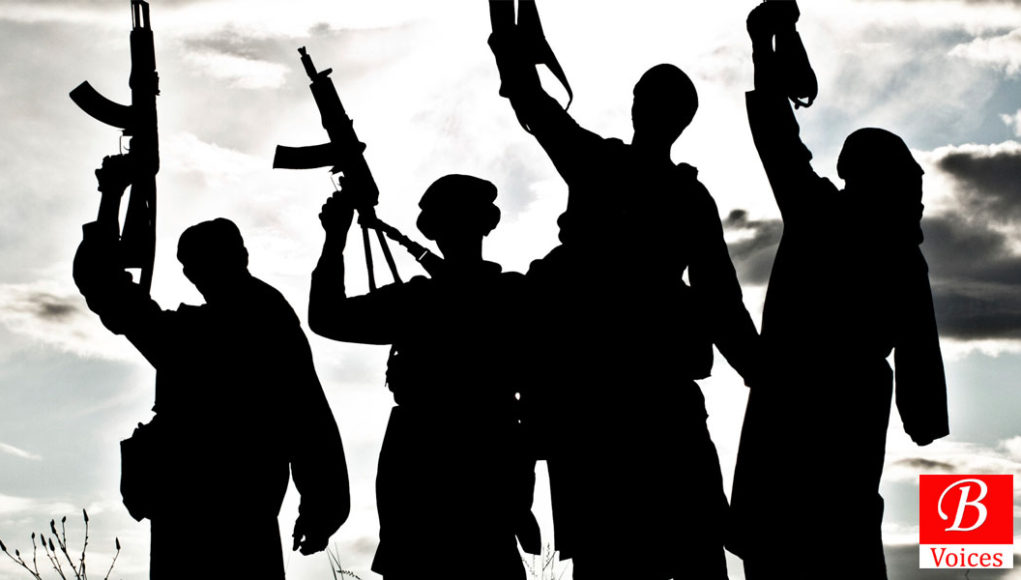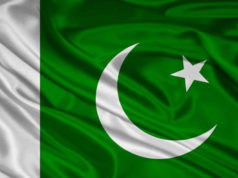Ayaz Ahmed
Balochistan is projected to become the regional trade hub on account of the CPEC projects. If this grand connectivity corridor materializes by the stipulated time period, this will undoubtedly make Pakistan a major economic and naval power in South Asia. However, the growing presence of Daesh in Balochistan is likely to further complicate the insurgency landscape of the resource-rich province, thus instigating major security impediments to the grand economic project.
Daesh has recently ramped up its furtive efforts to establish its permanent foothold in restive parts of Balochistan. The militant outfit claimed that its fighters had killed two Chinese language teachers who were kidnapped on May 24 in Quetta. Indisputably, this is an ominous development that could well bring Daesh quite close to assorted Baloch insurgent groups that are also bent upon targeting Chinese nationals in Balochistan with the intent to scotch CPEC.
Daesh’s increasing presence in Balochistan has lately swung the army into action to inhibit the militant group from cultivating its terror roots in the insurgency-stricken areas of the province. The army recently conducted an intelligence-based military operation against the proscribed Lashkar-e-Jhangvi (LeJ) Al Alami, which was hiding in caves of Koh-i-Siah near Mastung. According to the ISPR, 12 hardcore militants were killed in the exchange of firing for three days.
The outlawed group was believed to be making hectic attempts at communicating with Daesh so as to establish the latter’s footholds in some parts of Balochistan. If the LeJ Al Alami’s budding headquarters were not razed, the militant group could have carried out some deadly attacks across the province.
Though the PML-N led provincial government has repeatedly denied the menacing presence of Daesh in Balochistan, the trans-regional militant outfit has so far claimed some grisly terrorist attacks in the province. The militant group claimed some of the major attacks in the province, including the suicide attacks on lawyers in Quetta on August 8, 2016, the Quetta Police Training College on October 24, 2016, the Shah Noorani shrine on November 12, 2016 and the Mustang attack on Senate Deputy Chairman Maulana Abdul Ghafoor Haideri in May this year.
Despite these deadly attacks, the inept and corruption-ridden government of Balochistan has continued to downplay the lurking threat of Daesh in the province. The underlying reason behind such apathy is that the majority of politicians in the province are so incompetent that they are unable to reform the floundering and under-resourced police force of the province. These unaccountable and affluent politicians seem to have been elected just only to loot and plunder the scanty resources of the long-deprived province.
Daesh has thus far failed to fully establish its covert sanctuaries in Balochistan largely because of the military Operation Zarb-e-Azb and the Raddul Fassad. When it was decided to make Usman Saifullah Kurd, operational commander of LeJ in Balochistan, as Daesh chief in the province, he was killed in a fierce gun battle in Quetta in February 2015.
Such killing of Daesh’s operatives in Balochistan has made the militant group adopt the clever policy of secretly aligning with some like-minded and well-established local outfits with the view to augment its presence and relevance in Balochistan. The potential recruitment bases and resources of some local groups such as the LeJ have immensely helped Daesh carry out some deadly attacks in the province.
On account of the low-intensity insurgency in Balochistan, certain militant and sectarian outfits have found safe hotbeds in the province to carry out their terrorist and militant activities. The continued military operations have successfully confined Baloch insurgents on the rugged mountains of central parts of the province. But, both the LeJ Al Alami and the Jaish ul-Adl have capitalized on the army’s engagement against ragtag insurgents to establish their sanctuaries in northern and western areas of Balochistan.
The lack of resources and recruits has compelled Daesh to partner with the Lashkar-e-Khorasan (LeK) — a militant-cum-sectarian group based in western and southern areas of Balochistan — to target Hazaras and Zikris in the province. The LeK brutally killed six Zikris on August 28, 2014, when they were busy in their worship at Zikrkhana. The same group is also believed to have painted walls in Turbat in favour of Daesh in the recent past. Though the LeK has lately gone underground owing to the heavy presence of army personnel in Balochistan’s littoral areas, the outfit could resurface and restart targeting the Zikri community in coastal areas of the province any time in the future.
The second partner of Daesh in Balochistan is the hibernating LeJ Al-Alami. Both the groups have jointly orchestrated some gruesome attacks in the province, including the one on the police cadets in Quetta. The LeJ Al Alami has informally aligned with Daesh aimed at using the brand of the latter to attract more and more misguided jihadists and funds for carrying out attacks on the beleaguered Hazara community in restive parts of Balochistan. This terror partnership has greatly helped Daesh to introduce its militant brand across the province.
Daesh’s recent deadly attacks in Iran show that the group may align with the anti-Iranian Jaish ul Adl, a splinter group of Jundullah based in western Balochistan. Given the latter’s penetration into Iran’s province of Sistan-Balochistan, this alignment will help Daesh organise deadly attacks deep inside Iran.
If Daesh is allowed to strike its roots in Balochistan, the group will probably unleash its terror activities in both Iran and Pakistan. It is time both the countries evolved a comprehensive policy designed to jointly flush out the rampaging militant group once for all.
Writer is a featured columnist for Balochistan Voices. He also writes for The News and other publications. He can be reached at [email protected]
Disclaimer: Views expressed in this article are those of the author and Balochistan Voices not necessarily agrees with them.
Share your comments!








